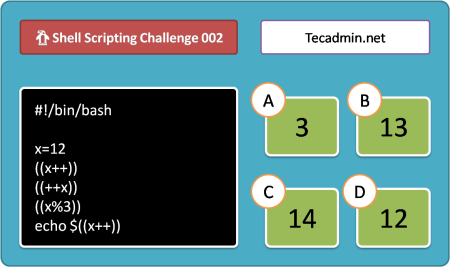Bash, or the Bourne Again SHell, is a popular Unix shell that provides users with the ability to write scripts and execute commands. The Bash scripting language allows for the creation of advanced scripts that can automate tasks, manipulate text, and perform logical operations. One important aspect of Bash scripting is the use of operators for comparison and arithmetic operations.
In this comprehensive guide, we will explore the ‘-eq’ operator in Bash and its various applications. This operator is commonly used to compare numeric values and can be a vital tool for conditional statements and decision-making in Bash scripts.
Understanding the ‘-eq’ Operator
The ‘-eq’ operator in Bash is an arithmetic comparison operator, which is used to determine if two integer values are equal. It returns a true (0) exit status if the values are equal and false (1) if they are not. It is important to note that the ‘-eq’ operator should only be used with integer values.
Syntax
The ‘-eq’ operator is typically used in combination with the ‘test’ command or its equivalent ‘[ ]’ (square brackets) or ‘[[‘ ‘]]’ (double square brackets) syntax. Here is the general syntax for using the ‘-eq’ operator:
#With test command
test value1 -eq value2
#With [] brackets
[ value1 -eq value2 ]
#With [[]] brackets
[[ value1 -eq value2 ]]
Examples
Let’s look at a few examples to understand how the ‘-eq’ operator works:
- Simple comparison:
#!/bin/bash a=5 b=5 if [ $a -eq $b ]; then echo "The values are equal." else echo "The values are not equal." fiIn this example, the ‘-eq’ operator is used to compare the values of the variables ‘a’ and ‘b’. Since both values are equal, the script will output “The values are equal.”
- Comparing values in a loop:
#!/bin/bash for i in {1..10}; do if [ $i -eq 5 ]; then echo "The value is 5." else echo "The value is not 5." fi doneIn this example, the ‘-eq’ operator is used to compare the loop counter ‘i’ with the value ‘5’. The script will output “The value is 5.” when ‘i’ is equal to ‘5’, and “The value is not 5.” otherwise.
Caveats and Alternatives
It is important to remember that the ‘-eq’ operator should only be used for integer comparisons. For string comparisons, use the ‘==’ or ‘!=’ operators instead. Additionally, when comparing floating-point numbers, the bc command can be used to perform the comparison.
Conclusion
The ‘-eq’ operator in Bash is a fundamental tool for comparing integer values in scripts. Understanding its usage and syntax is essential for creating efficient and effective scripts. This comprehensive guide has provided an overview of the ‘-eq’ operator, its syntax, and examples of its usage. With this knowledge, you can now confidently use the ‘-eq’ operator in your Bash scripts for various tasks and scenarios.



